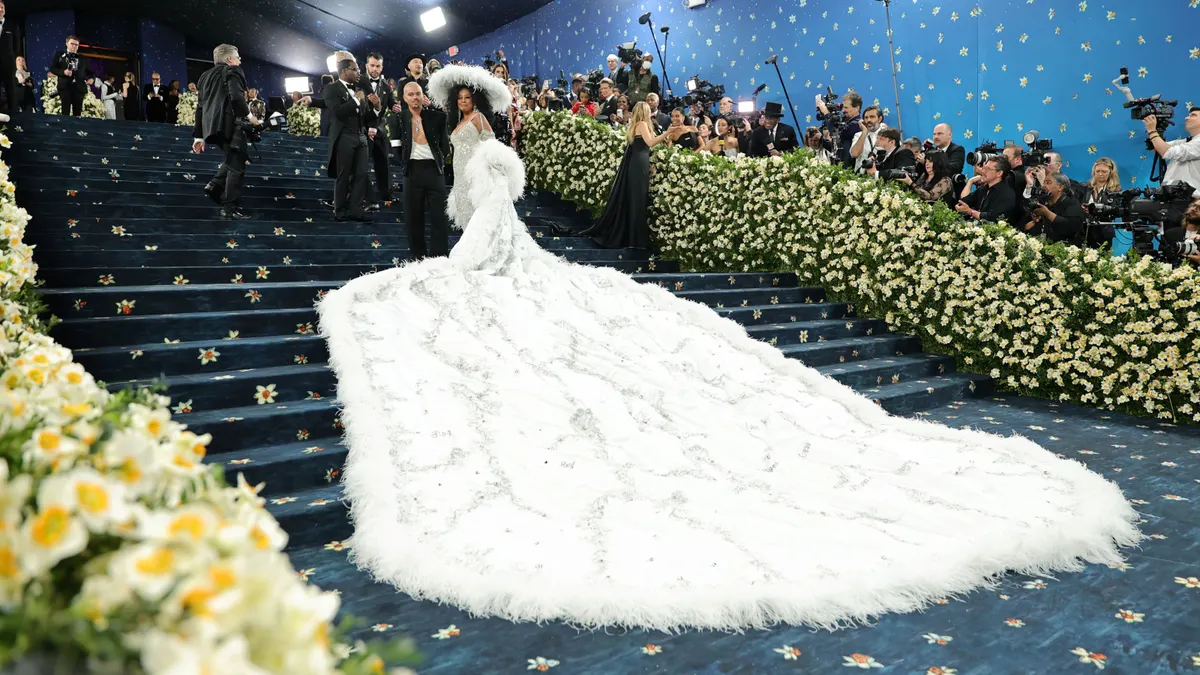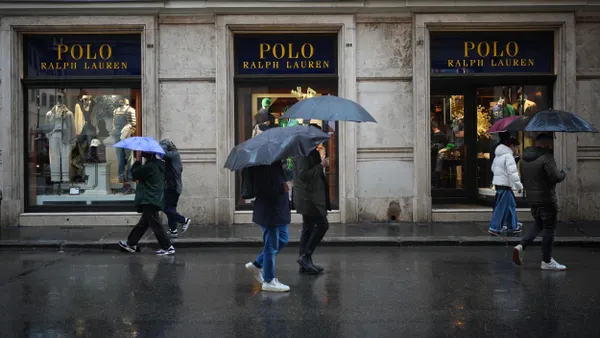Dive Brief:
- Congressional lawmakers should take steps to ensure that Shein and emerging Chinese fast fashion companies are complying with U.S. trade restrictions and intellectual property laws, the U.S.-China Economic and Security Review Commission said in a report last week.
- The report recommends that legislators should also review customs and tariff policies, which mostly exempt packages worth less than $800 from being reviewed. This disproportionately benefits Shein, which largely evades customs scrutiny because its average product sells for just $11 and is shipped individually.
- The report comes as concerns over Shein grow, including allegations that it rips off designs from high-profile companies and smaller designers alike, produces garments from factories with rampant labor violations, and sells clothing with high levels of hazardous chemicals, such as lead.
Dive Insight:
Shein has proved immensely popular with U.S. consumers. The report cited research showing that the Chinese company accounted for half of all fast fashion sales in the U.S. by November, surging ahead of Zara, which accounted for 13%, and H&M, which accounted for 16%. It also has the most popular beauty and fashion app in the country, with 27 million downloads, more than double that of Nike, the company in the No. 2 spot.
The findings broke down the business model of Shein. The company doesn’t sell its clothing in its home country of China, but rather exclusively markets and sells apparel abroad.
Shein uses customer data and search history to predict emerging fashion trends, delivering these clothes to the market before competitors. To assist its data collection, the company offers users discounts in exchange for information about their activity on other apps, including social media, according to the report.
The author highlighted several concerns over Shein’s practices. In November, Bloomberg reported that tests showed Shein had sourced cotton for its clothing from China’s Xinjiang province. The region is where China has been accused of detaining more than 1 million Uyghur people, a Turkic ethnic group that mostly identifies as Muslim.
In late 2021, President Joe Biden signed the Uyghur Forced Labor Prevention Act, which bans products from the region over forced labor concerns. Three Democratic lawmakers wrote a letter to the company earlier this year, writing that they were concerned Americans may be unwittingly buying clothing that was made through forced labor.
The lawmakers also raised worries that Shein was pricing shipments to avoid customs enforcement. That strategy may further take eyes off its cotton sourcing, according to the new report, which argued that Shein and other Chinese fast fashion companies were uniquely able to take advantage of these policies.
The new report also flagged concerns over intellectual property violations. In 2022, for instance, Shein was facing more than 50 federal lawsuits accusing the company of trademark or copyright infringement.
Complaints of Shein copying designs have come from all corners of the fashion and apparel industry, ranging from high-profile brands like Ralph Lauren to small designers such as Tiina Menzel, an artist in Germany. Menzel told the Wall Street Journal last year that she caught Shein selling T-shirts with designs that she had posted on her Instagram.
Although the report focused on Shein, it warned that other Chinese fast fashion companies appear to be following its playbook. It also called out Temu, which has recently become popular in the U.S., and has been accused of copyright infringement and forcing employees to work extreme overtime, according to the author. Other firms following in Shein’s footsteps include Cupshe, JollyChic and Urbanic, according to the report.
Consequences aren't severe enough to prevent Shein and its competitors from copying designs without permission, which has led to frequent intellectual property law violations in the U.S., the report argues.











